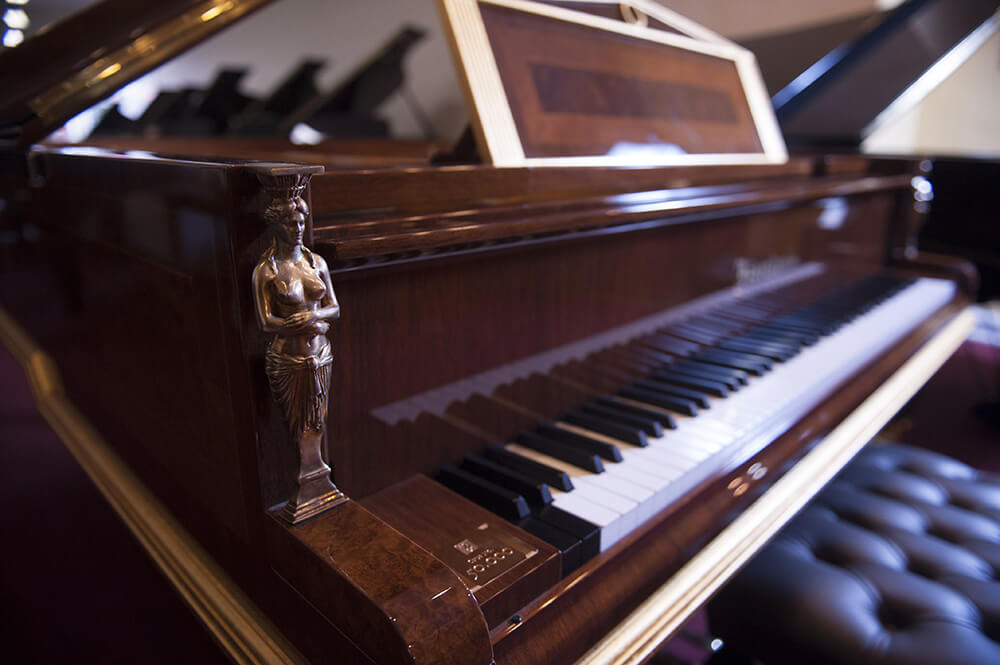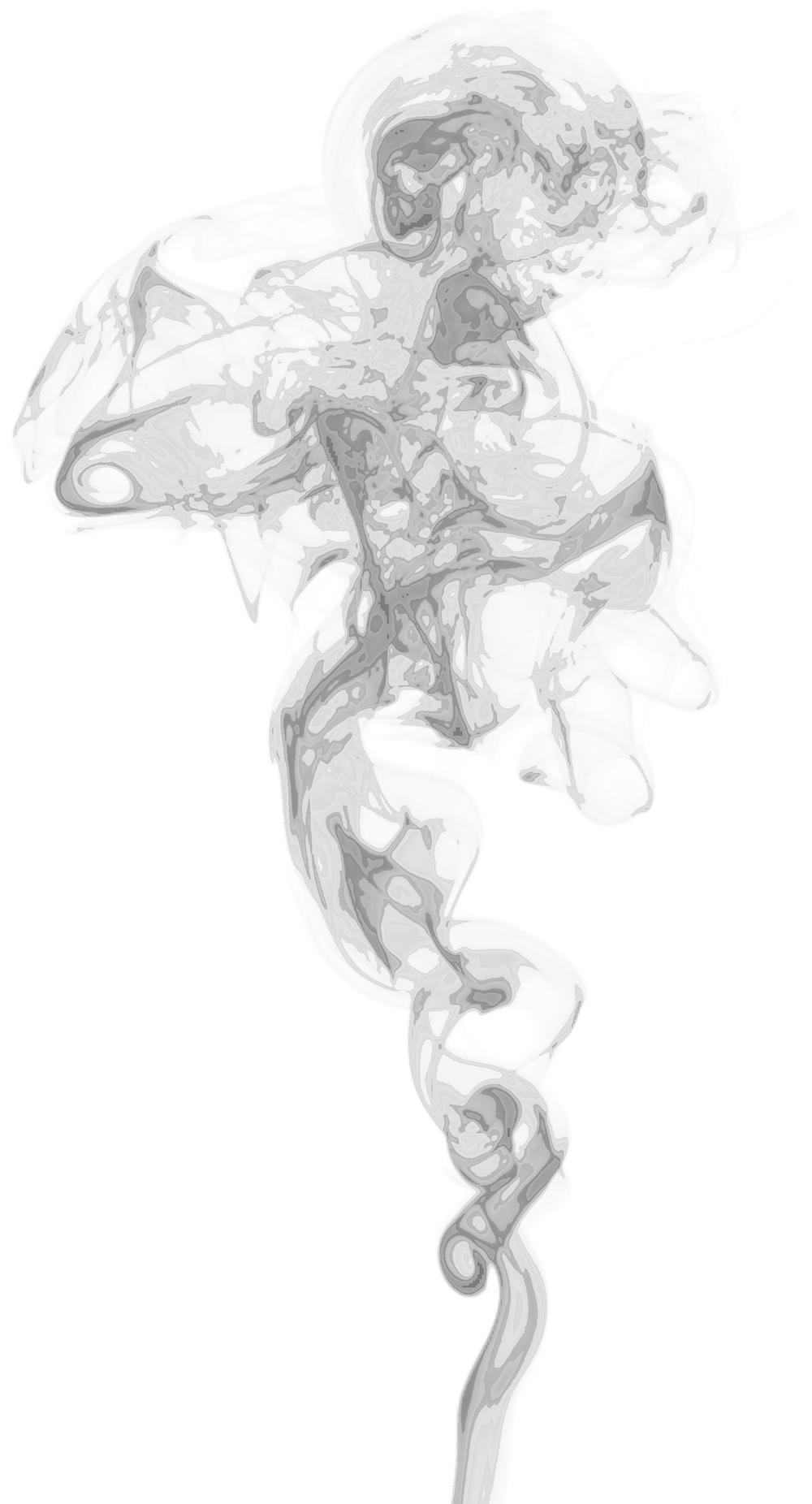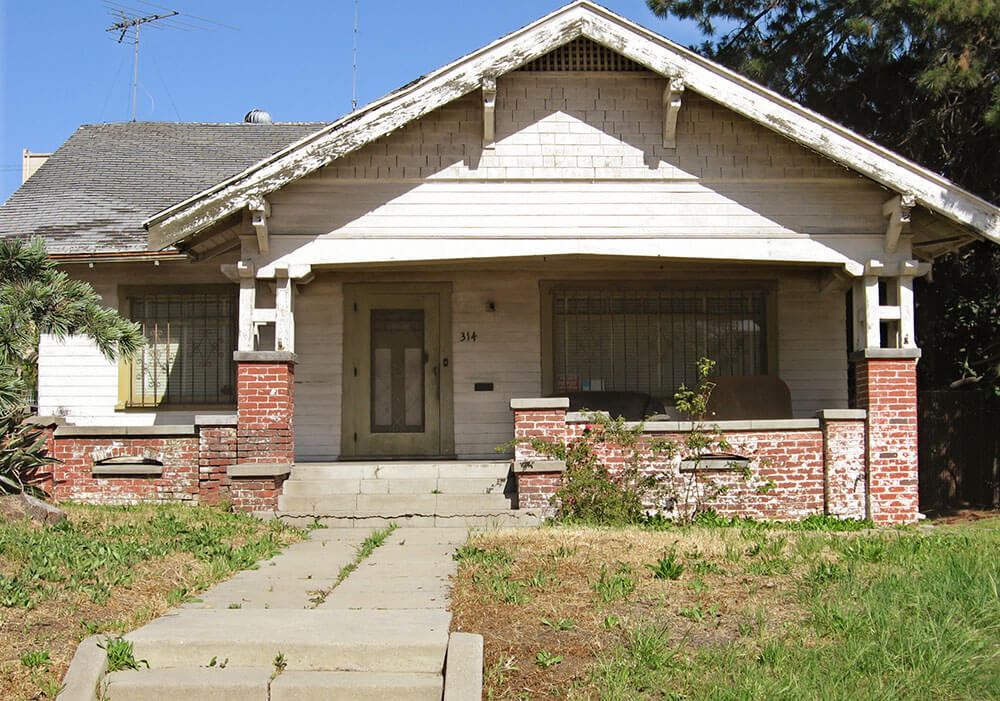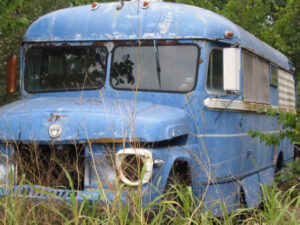Tag: Dawyn Henriquez ’19
A Strange Request at a Piano Bar
by The Cowl Editor on April 26, 2018
Portfolio

by Dawyn Henriquez ’19
The carnival rhythms bounced across the ivory keys in disjointed synchrony. “Entry of the Gladiators” was a strange request at Sal’s, where classical bullshit was typically demanded. As soon as Sal started the almost juvenile theme music of circuses, the musings of the pseudo-intellectuals at the bar sprained over one another, tripping into silence. A mask fell over each of them—faux-elitism stretching their features in disgust as they all tried to discern what in the hell was going on. The controversy was as delicious as the scent of sassafras that Sal loved to hang in the air. Awkward glances at the glowing Bösendorfer emitting the hymns of carnies everywhere was really what did it for me. This piano was older than the audience’s collective age. It was expected that its cords would only ever play Bach or Beethoven before it would give way to oxidation. Instead, Sal’s fingers twirled to clownery and the pedestrianly perceived artistry of an era. After all, it’s only known so well because it was once so popular. But, like all great music, it was overplayed, overhashed, and turned into a cliché as common as the trope of a piano bar in literature.
“Hey honey, lemme get another dirty martini.”
Somewhere In The Clouds
by The Cowl Editor on March 1, 2018
Poetry

by Dawyn Henriquez ’19
The smoke danced,
Curling into our minds and
Selling us paranoia for cents of sobriety
Like a vendor of beans labeled magic,
Giving us stalks through each pass.
After, all that remained was ash
Spread across the coffee table.
The snore of a giant
Lying on the couch the only sound
Cutting through the drizzle
Dripping outside my window.
And, as the blue before dawn
Peeked its head through the darkness,
I stood there
Watching
The rain filled sky
With cloud filled lungs.
So much depended
Upon
A late Monday
Night
Drowning
In air
Coughing up
Silence
Bowl
by The Cowl Editor on February 1, 2018
Portfolio

by Dawyn Henriquez ’19
“I needed this,” Don sighed, placing the pipe on the coffee table. The burnt-out bowl stared up at me from the mahogany— trees on trees. It smiled at me, an eccentric smoke signal coming from its glass lips. “Set me aflame,” it said. “Set me on fire so that I can reveal to you your past, present, and future,” it exclaimed. “Take that nondescript flame and pierce your dreams with my pungent sword,” it yelled.
“Yo, take one last hit Brain, you staring at that shit like it’s a badass shorty or somethin’,” Don said laughing.
“You don’t gotta tell me twice,” I chuckled and grabbed the bowl by its slender body and followed its demands.
“Y’all ever wish to make it out the hood and shit?” Lil Charlie asked from where he was laying on the floor with a shirt over his face.
“No shit, I’m sure we all do,” Don said.
“But nah, for real though. Like, have y’all ever thought about what we could do with the world? Like, if we applied ourselves up in school and shit.” He was sitting up then, looking at us with actual hope in his eyes.
Of course, Lil Charlie wasn’t spouting any thoughts that hadn’t ever crossed my mind. They didn’t call me Brain for no reason. The only issue was that, back then, we didn’t live in suburbia, or anywhere near what white people would call civilized. We lived in the slums, a couple of streets away from where brownstones cost over a million. The schools we were allowed to attend weren’t trained to get us out of the system, they were specifically geared to earmark us as outcasts in America’s chapters. We were pariahs and treated as such, if not worse, and Lil Charlie and I were just freshmen in high school.
“Be careful wishing for the world when you’ve never felt like you’ve fit into it,” I said.
“I know that, man. We been buried underneath the rubble of history on some bullshit since they laid down the groundwork for this shit. But we can rise up, we can beat them at their own game and sneak our way into the book if we play it right.” He always got like this when we smoked. He was the most optimistic kid I had ever met; honestly he had to be.
Back at home, Lil Charlie’s parents were addicted to that rock and valued it more than anything else. When he was six they tried selling him for a couple bucks, so they could re-up and stay high for a while. It didn’t work. The slingers on our corners just wanted their cash, and no drugged up homeless folk were going to convince them otherwise.
Oh, right, that’s another thing, Charles “Charlie” Williams was homeless, for the most part. He split his time between his parents’ under Tillman Bridge and my house.
“Word, that’s true, but I ain’t gonna become no Uncle Tom and sell my ass to no white man at an office,” Don stated with as much eloquence as he could muster. “If that’s the price of being one of them uppity folk with legit cash uptown, I rather stick to this game right here,” he finished as he nodded towards the outside where the corners reigned, and where the neighborhood slingers were stationed.
The room went silent for awhile after that. I listened to the wind pounding on the window, my paranoia making me believe that even nature was out to get us. The sun was fading fast, following the descent of reason in the room as rain began to fall.
“Damn bro, that’s some depressing shit,” Lil Charlie said, breaking the silence.
“Nah, that’s just the real my man. That’s just the real…” Don trailed off. I think he started talking about Reagan’s bullshit War on Drugs and how it was affecting his business, but all I can remember is the look on Charlie’s face.
His eyes were a bit sunken, defeat painted by a high mind. He was the youngest out of the three of us and, coincidentally, the most sensitive, so when he was sad there was no hiding it. He always had a constant pain about him, masked behind his wall of optimism, but in that moment his face was rich in melancholy, numbed indifference crowning his lips with death’s lilies. It seemed to me then that he was understanding, realizing, the heartache of being born where we born, coming to terms with the million unnatural shocks that our black bodies were heir to. Our world was one where cold winters turned into summer when hot bullets grazed the air we breathed, not one where hope can typically thrive.
“…but yeah y’all, that’s why the war on drugs is deadass a war on black people,” Don finished. “Y’all tryna hit the roof to chill real quick, though?”
“Yeah, for sure, c’mon Charlie.” And with that we left the apartment through the fire escape without any other words exchanged.
Don was seventeen then and had his own place from slinging. His God-fearing mother didn’t want anything to do with his drug money, or him for that matter, if he didn’t stop. Needless to say, he never did, he was too deep then, too connected, the game was in his blood and no amount of social dialysis could syphon it out of him.
On the roof, the blackened sky stretched ahead of us farther than any of us could see. High as I was I felt like I was at sea with the raindrops that pelted us, the drizzle becoming a small storm inside my head. Before that school year was over I dealt that rock for the first time. Don would die the winter that followed. And Lil Charlie, well, Charlie Williams, would be gone by the grace of God. But, in that moment, with cloud filled lungs, rain filled sky, and water gilded ground, we were drowning in air, coughing up silence.
Afro
by The Cowl Editor on November 16, 2017
Portfolio

by Dawyn Henriquez ’19
I was six or seven. It was a scalding Dominican summer day that began with a hurried packing of bare essentials— underwear and shorts—as my aunt prepared me for a visit to my grandmother’s in the campo. It was basically out in the wilderness, some miles away from the city.
While I was inside, saying goodbye to my cousins, readying myself for the journey ahead, the guagua seemed to appear out of thin air, blasting its horn outside my aunt’s door in a frenzy. I peered outside to see a rusted chassis with a navy coat of paint that was one rainstorm away from peeling off. The four tires seemed about ready to melt in the noontime sun. Each one in a different phase of their lives, three in their respective winters, while one had seemingly just been reborn in the spring.
I couldn’t see inside past the tinted windows, but I knew the driver had to be a disheveled old fella of some sort, impatiently tapping his foot, wanting to be on his merry way. Those drivers were always miserable guys and I’m sure the equatorial summer had plenty to do with it. Though somehow, through the rusted disrepair of the bus and the likely irritable driver, I imagined a Magic School Bus adventure with a male Ms. Frizzle at the helm of it all. Needless to say, it was nothing of the sort.
I arrived what felt like days later to my adolescent mind. I was cramped next to my aunt the entire time, who was dropping me off at a stop where one of my uncles would pick me up on his scooter. She held my hand most of the way there, I don’t know whether it was to reassure me she was there or whether it was to reassure herself I was.
Everyone worries a little too much in a Dominican family. Especially if you come from the States; they always think you somehow reek of New York, even if you’re from Rhode Island and not the famous “Nueva Yor,” the state that embodies most of North America to everyone there. Caribbean families always think you’re going to get robbed or kidnapped and held for ransom or something. To this day, as an adult, they expect me to take off any jewelry just to be safe. They thought if they got rid of any physical indication that I was from the States that they could protect me, but my broken-ass Spanish would forever be a dead giveaway of where I came from.
The ride to my grandma’s house on my uncle’s scooter was almost five hours with the midafternoon sun on my neck and back. Or at least that’s what it felt like at that age; it was probably less than 30 minutes in real-time. The scenery shifted from close knit buildings reminiscent of old 1950s sepia pictures to all fields and woods. Eerie little bundles of houses gave way to outpost- like buildings, and past that to nothing but dirt road and tropical trees. When we reached another huddle of shabby houses painted in classic Caribbean greens and pinks we stopped; we had reached as far back as my maternal ancestry went.
It was a modest little setup; everyone had just enough room to be okay but not quite enough to be fully comfortable. The community itself stared off into the distance at an African grassland seen through young eyes. The stalks of grass in front of my grandmother’s house were that tall, giant even. Every strand a part of a place that laid the stepping stones to my existence.
“Bendición mami,” I said with excitement laced in my blessing. Her sun beaten arms wrapped themselves around me like lush brown earth, ready to nourish a seed. Una negra hermosa. She was the color of a warm cup of coffee on a wintry night in the States, with just a subtle hint of cream giving her a chocolatey complexion. Over the years, I grew to associate that color with her warm hugs and tender forehead kisses.
“Que Dios te bendiga, mi amor,” her cinnamon scented voice whispered down to me. She hugged me tightly, not wanting to let go of her small grandchild the color of caramel coffee with extra cream—the result of her falling in love with a half-Italian, half-Dominican breed of arrogance who thought he could bypass fertility even though he didn’t even use a condom.
That visit was one that would forever change me for the better. During my time with her I realized that I am la sangre de mi sangre, the blood of my blood, coming from both the conquerors and the conquered of a New World, like all Caribbeans are. It was she who taught me to love the skin of our ancestors, the ebony-ivory tomes of our collective pasts—the pages of our history. And it was she who taught me that love extends beyond what we can see through the flesh. Shit, I wish my grandmother had shown America how to love.
Conductor’s Plight
by The Cowl Editor on October 19, 2017
Portfolio

by Dawyn Henriquez ’19
She slipped the wedding band off like it was a long-dreaded hangnail that she was finally able to clip. She couldn’t help but seem delighted in taking it off, as if ridding herself of the husband who often had her come back to me with bruises the color of eggplants and bumps the size of small rotund hills. The golden crown sat on the palm of her hand—the last semblance of any matrimony besides the shared house and the already drawn up divorce papers.
She’ll wear it again later, of course, after we’re done—putting it on like a child puts on their backpack for school in the morning after their bed caressed them into dreams of the sublime. I’ve told her time and time again, “Don’t put the ring back on when you leave,” but she’s never answered, instead, she always wraps her legs around me, shutting me up and turning me on at the same time.
I could see the hope she was holding out for him through her silence. Hope that he’d turn back into the person he was when they first married: a sweet, loving man before he resorted to spending more time with the rims of bottles.
She always placed the ring on the night-stand as if it were the case of a delicate instrument, defying the way she would initially remove it. But, after it was off, a new person emerged, one not concerned with the well-being of what she was playing, but rather more concerned with the music. The shy, reserved woman, who was always composed in the office and focused on her task, gave way to some other sort of person, a prodigy violinist amid an original piece.
This was the woman who could barely utter a word to me at work and yet, somehow, mustered up a different persona, one filled with courage and a cumulus cloud of self-esteem that could never be brought down to be fog. She was soaked with confidence and a
completely different air to her. She writhed around, playing hard to get but knowing damn well that this was happening because a conductor controls the entire orchestra, including the violins.
She was more reserved back when our affair first started, plucking my strings with stage-fright like fear that she wouldn’t be good enough. He did that to her—made her feel insecure about her actions. A couple months of practice, however, changed all that—I brought out the innate talent in her. With time, I had her hauling me into the filing room, pulling my pants down and not caring where we were, devising her own plans for private concerts. But we were in my room then, not having to hold the music back.
Getting her out of her clothes should have been easier, really, but she needed more
convincing of her talents there than anywhere else. Like a proper conductor, I had to start the concerto with a low rumble that would only tease the audience until the full extent of the musical anticipation was evident and then, and only then, would the violins play their sweet song.
I finally tore away the layers that separated our two beings. Her satiny skin draped under mine in backward embrace. The backside of her hands clasped within my palms as the back of her head, decorated with lush black webs of silk, stared at my face with unseeing eyes. And then, just as the symphony was being conceived, just as I, the conductor, with a simple stroke of my right wrist, was going to command the violins to rise and rebel against the quiet sanctity of the orchestra, the phone started ringing—her phone.
I looked over to see her husband’s face plastered on the screen and I cursed every fiber in his goddamn being for interrupting what could have been the grandest of concertos. She left soon after, under-played and soon to be over-worked throughout her busily scheduled day.
No One
by The Cowl Editor on September 21, 2017
Portfolio

by Dawyn Henriquez, ’19
“Who are you?”
“Tom Harkos.”
“No, no, no,” he said, his silver mask reflecting the late afternoon sun into my eyes. “Who are you?”
“Thomson Eliot Harkos,” I said, thinking my full name should do the trick. At that he laughed, his grimacing false face emphasizing the ill-natured air between us. I’ll never forget that laugh—a howl as dry as a cool fall breeze cutting through a late summer’s day.
“Who are you?” he asked. Mocking his monotonous tone, I began to say my name, but, just as I started to speak, the ‘E’ in my middle name collided with the shattering pain of his knee swinging up into my groin. My abdomen clenched like I was about to hurl, everything in me telling me to double over and scream, but I couldn’t even flinch. I was frozen in place, not a single muscle moving in response to the pain, as if I hadn’t been hit at all. Internally I was screaming, clawing at my will to move, but nothing. There were no signs, I hadn’t even an inkling to the fact that he had control all along; my body was no longer my own.
“Who are you?” He asked with amusement painting his words and making my blood boil. I didn’t say shit, like hell I was going to keep getting played with. I didn’t even care about my name much anyway, according to this world it was never mine to begin with. It was always his: the twin brother I never knew, the brother whose crimes I had to pay for because his death was mercy.
“Who are you?” he repeated as if I hadn’t just willingly ignored him, but there was no laugh. I knew it was going to go bad when he stayed silent for a couple of seconds; a silence scorched the space between us with malice. The quieter it became the more I realized one thing: silence was going to cost me. Without warning he just started pummeling me, his metal-plated gloved fists going on consecutive dates with my face as I tried to fight back with no body to do so. A couple of jabs and an uppercut later I was on the ground, close to unconscious but unable to drift away—I couldn’t even if I wanted to. I hadn’t committed any crime, I hadn’t hurt anyone, and yet my blood was being shed, simply because of who I was. Is this what the world has come to? The innocent suffering for the crimes of the wretched? As I started to drift further I felt his brusque hands flip me over, anchoring my mind before it got away. He pulled me up by my shirt, a crimson stream trailing behind my head as the rest of me just laid there, paralyzed until he felt otherwise.
“Who are you?” This time I could tell he was enjoying himself. His monotone voice rose a couple of octaves behind that sneering mask, every word steeped in sadistic excitement.
“Screw you, you coward,” I spit back.
“You are a fun one! I hope you have the same spirit in there,” he said with uncharacteristic excitement, gesturing towards the underground prison entrance. “As for out here, you will get whatever you give, so make it easy on yourself and tell me.”
“Go to hell.” At that he started cackling, as if I were the funniest person he’d ever met.
“My dear friend, I am afraid that is where we have been all along,” he said in between chuckles. With more strength than humanly possible he pulled me up and tossed me against the nearest boulder like an oversized ragdoll. Taking slow, deliberate, steps, he walked up to my body. As he got closer he pulled a baton out from inside his black cloak, swinging it around like he was a professional baseball player until he got to me. Fear started making its way into my veins, coursing into every part of me until I was buzzing with the prospect of running; but that moment would never come. He got up close, yanking me up by my hair just when I thought he couldn’t further demean me, and slammed the baton on my throat with no reservations. Pain seized every nerve in my neck as I began to lose air. I was panicking, trying to get my arms to move, but getting no response. At that moment, I was convinced I wasn’t even going to make it into the prison at all; then he repeated his favorite question:
“Who are you?” The ice in his voice cutting deep into my mind, further stopping my attempts to breathe.
“I…” blood sputtered out of my mouth as I made the effort to speak. “I-I…don’t…know.” I got out from under the choking pressure, tears I had initially held back arced their way down my bloodied cheeks. He took the baton out from under my chin slowly, as if contemplating whether I had given the right answer, and, just as I was taking in greedy helpings of breath, he slapped me across the face with it so hard that I fell over.
I’ve taken beatings before, hell, I’ve given them, that’s part of growing up a hothead. No matter what, I was always fighting back, always unwilling to go down without landing a couple of punches, leaving my mark on whoever dared lay a hand on me, but this time I couldn’t even swing at the guy—that’s what bothered me most. I just laid there, my face swimming in a pool of blood, the pain ebbing into every corner of my body causing the world to slow around me. Ribbons of red trickled off my lips and into the brown dirt that cushioned me, drop by century-long drop. Every second felt like a lifetime, an eternity’s wait to simply live or die.
“Who…are…you?” He asked again in his half-excited half-bored to death tone from before. I knew that if I didn’t answer the way he wanted I was going to die this time, I could feel it in my bones. And yet, I had no answers, no voice, no mind, and barely a body. And, just when I thought his patience had worn thin, just as I sensed he was about to finally put an end to me, the baton pushing down on my skull, the words spilled off my tongue, covered in blood, like I had known them all my life.
“I’m no one. I’ve never been anyone. I’ll never be anyone.”
At that the baton found itself lifting, all pressure and punishment going with it. The atmosphere of brutal murder that lingered in the sky above me disappeared as his mind forced mine into a false sense of safety. He helped me up and leaned me against the boulder with the gentle hands of a caregiver, as if rewarding my new self-proclaimed lack of identity. Once he made sure I had enough of my brain and balance to stand on my own he began to peel off his mask. The first thing I noticed were his eyes, the darkest irises I had ever seen. Eyes of pure night, black holes that pulled mine into his—condensed chasms of darkness placed on a face. A face so close in likeness to mine that I couldn’t distinguish any difference whatsoever—because it was mine. That was my face; those were my eyes.
He smiled at me, a Mona Lisa-like smile—all-knowing and un-telling, and he seemingly found delightful the recognition I was aiming at him. For a second I was about to say, “You bastard, you’re still alive?” I thought it was my brother, but, just as suddenly as I thought it, my face was gone, replaced by a blank head devoid of any features or identity, yet somehow still able to laugh without a mouth.
“Welcome to Futorren Prison,” he said, right into my mind. “A personal hell to all and a prison to no one.”
